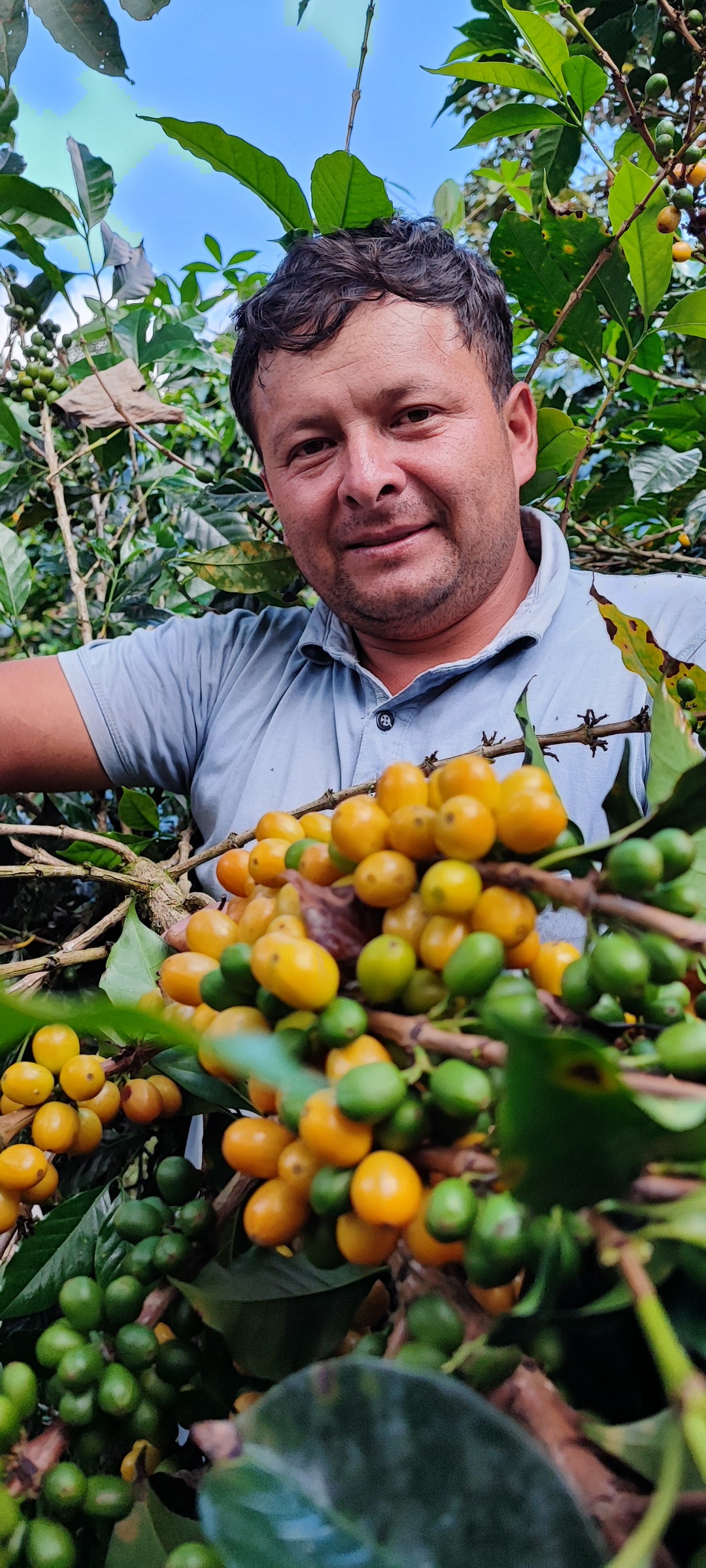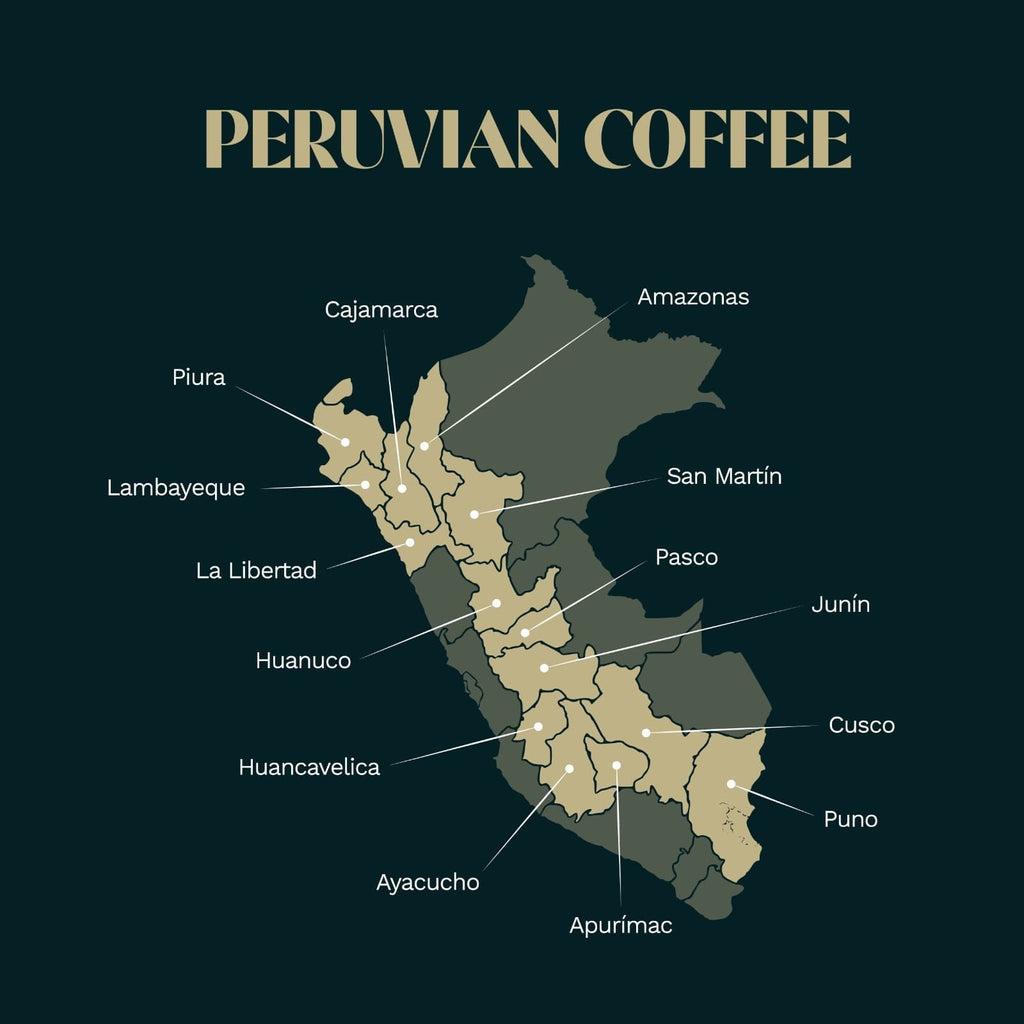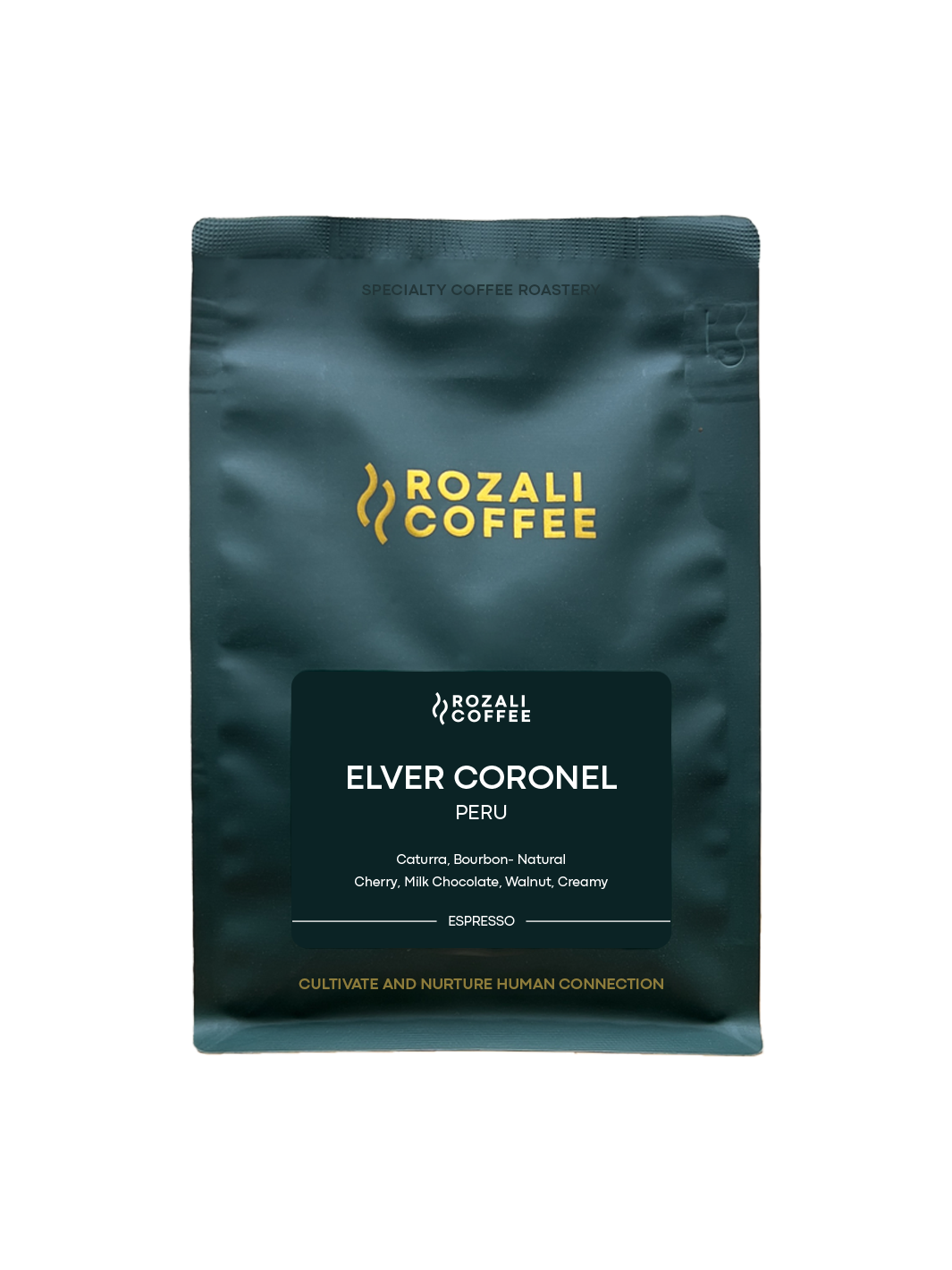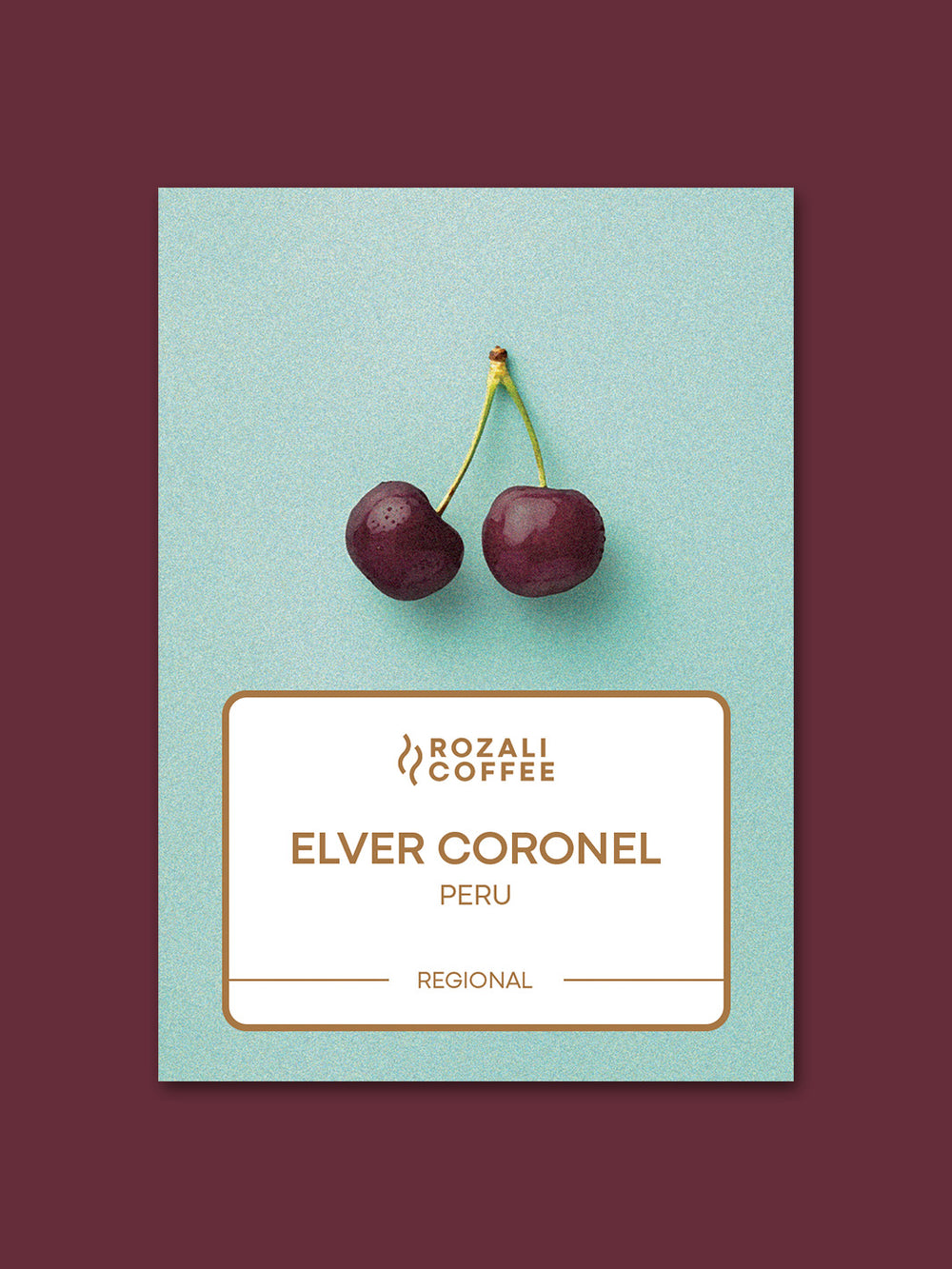Elver Coronel
Elver Coronel is a young and ambitious farmer from the well-known Huabal department in Cajamarca. Along with his brother and other family members, they have dedicated their whole lives to growing high-quality coffee. Their farms are full of red and yellow Caturra trees, indicating their solid determination to produce great coffee.
In their local community, Elver is known for his initiative and risk-taking attitude of buying cherries from neighbouring and family farms to support the local community. These cherries are then processed and mixed with his coffee to be sold as community lot coffee.
This lot is called Aguas Coloradas, named after the red-like tones of the water stream in La Flor. La Flor is a region made up of small towns. Its location at 1800 MASL and chilly temperatures are the perfect conditions for growing coffee because they allow a slow ripening of cherries.
Elvers and the local community have been processing their coffee as washed coffee. Until recently, they started with a natural process because of more demand from buyers. To their surprise, natural process coffee gives them a more complex and fruity cup. The first steps in the picking are the same: only select the ripe cherries, but then they choose to put them down to dry straight after picking - without additional fermentation.

The Coronel family dried the cherries right after picking without the additional fermentation. The cherries are dried on raised beds for up to 20 days until they reach ideal moisture content.

Cajamarca
Cajamarca is a beautiful department located in northern Peru, known for its stunning Andean mountain range and high-quality coffee production. The area was once home to the Incas, and the rich cultural heritage is still evident in the many small farms that dot the landscape.
The coffee produced in Cajamarca is renowned for its deep, sweet flavours with notes of caramel and cacao. The region has a thriving coffee industry, but it is mostly dependent on smallholder farmers who own between 2 and 3 hectares of land. These farmers use traditional methods to cultivate and process their coffee, including small pulpers and home-built parabolic dryers.
Jaén and San Ignacio are the two largest coffee-farming provinces in Cajamarca, situated at an altitude of 900-1,950 meters above sea level. Here, coffee varieties such as Typica, Caturra, and Bourbon are grown, producing sweet coffees with bright acidity and notes of red and yellow fruits.
Cutervo is another growing area in Cajamarca, located at an altitude of 1600-2,100 meters above sea level. This region recently switched from sugar cane to coffee production and now produces varieties such as Catimor, Pache, Bourbon, Typica, and a small amount of Pacamara. The coffee from this region has profiles of vanilla, stone fruits, and molasses, with medium acidity and a balanced body.
The region's coffee industry may be small-scale, but it is characterised by a deep respect for tradition and a commitment to producing high-quality coffee that reflects the area's unique terroir.









